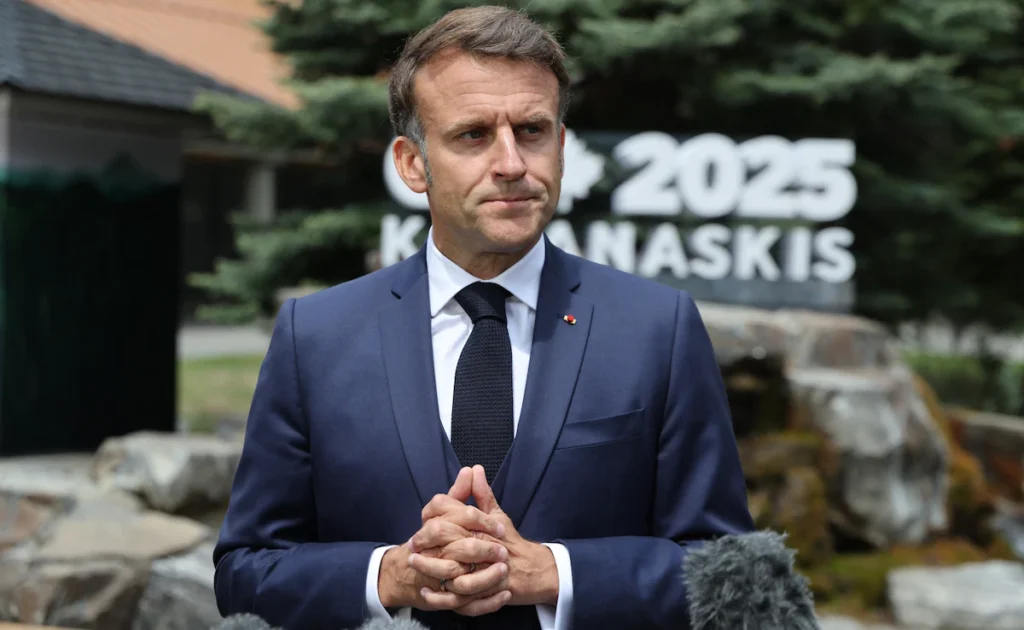French President Emmanuel Macron announced that the next Group of Seven (G7) Summit will be hosted in Évian-les-Bains, a spa town in France. Nestled on the southern shores of Lake Geneva, Évian-les-Bains is known for mineral springs and luxurious spas, and will host world leaders in 2026. The announcement was made at the present 2025 G7 Summit in Kananaskis, Canada as a strategic and symbolic move by France as they prepare to facilitate worldwide discussions on pressing economic, environmental, and geopolitical issues.
Context
The G7 is an informal group of advanced economies, an association of industrial democracies Canada, France, Germany, Italy, Japan, the United Kingdom, and the United States, which got together in the 1970s to more efficiently coordinate economic policy. It still does this but has expanded over time to cover a wider range of global challenges, such as climate change, digital transformation, security, and inequality.
France previously hosted the G7 summit in 2019 in Biarritz. Macron’s decision to host the summit again in French territory in 2026 demonstrates the tradition of rotational hosts as well as an opportunity to strengthen France’s global leadership position during periods of increasing geopolitical tensions and economic uncertainty. Évian also has additional historical relevance; it hosted the G8 (when Russia was a member) in 2003 under President Jacques Chirac.
Per France’s official statement, Évian was chosen for its “strategic location, secure infrastructure, and international diplomacy heritage.” Macron pointed to the symbolism of picking a town tied to peace, wellness, and cooperation to reflect unity despite the global fragmentation. The French presidency also pointed to logistical preparedness, including its location so close to Geneva, which is a major center for international institutions and has a long-standing tradition of receiving world leaders.
The announcement complements France’s renewed diplomatic activism under Macron, the former French President has also positioned himself at the center of EU, Middle Eastern, and climate diplomacy negotiations. The reports are that his government was already beginning planning for the 2026 G7 earlier this year, and well ahead of the Kananaskis summit.
Although the announcement is relatively straightforward, several substantive issues require some scrutiny; first, the strong association with Évian as an elite resort town has a potential to seem tone-deaf amid global concerns over economic inequality and if the summit develops into an exhibition of luxury instead of a sense of urgency, then there are questions about what this will mean for the messaging and optics associated with international diplomacy amid crisis.
Second, critics will query the impact of G7 summits. Although they produce photo ops and communiqués, previous G7 summits, particularly those on climate and global tax reform, have not resulted in binding commitments. Ian Bremmer, President of the Eurasia Group, along with some researchers from Chatham House, have presented analyses to justify that the G7 is still useful to coordinate views, but the actual level of influence is declining in a multipolar world driven by China, India, and other G20 members.
France’s decision is also an indication of strategic thinking. By selecting a tranquil, safe, and symbolically rich location, Macron may want to create conditions that allow for breakthroughs in global cooperation on nuclear energy transition, AI governance, and conflict resolution.
Imlication
The announcement is significant on both a short-term and long-term basis:
- Diplomatic Visibility: Hosting the G7 summit is an opportunity for France to influence the agenda of the summit and advocate for priority issues such as climate finance, development support for Africa, and cybersecurity.
- Local Economic Considerations: There are many economic implications for Évian as a result of the summit. Specifically, there are infrastructure investments, guaranteed existing tourism activity, and global media focus associated with the event. At the same time, there may be implications that cause concern for local stakeholders such as a focus on security and a sense of local ownership may not be achieved.
- Policy Momentum: Macron’s announcement signals an intention to use the summit as a launching point for tangible policy initiatives. If done well there may be renewed pledges to contribute an ‘escape route’ for global public goods (vaccines, energy access, fair trade) as well as social contracts for better representation in the process.
- Geopolitical Messaging: France may also use the summit to signify Western unification in the face of increasingly assertive autocratic behaviour from Russia and China. The Évian summit could become a space for liberal democracies to align and develop a consensus of strategic choices.
The fact that Macron has declared Évian as a G7 host city is much more than a logistical concern; it is a strategic geopolitical signal. This reflects France’s objective to guide the international agenda when multilateralism is weakening. Whether the next G7 Summit in 2026 can offer more than a fig leaf to the G7’s partnerships will depend on the French’s ability to balance optics with real action, and ambition with consensus.
If successful, the summit could not only solidify Macron’s legacy as a world statesman but also reinvigorate the G7’s influence in a divided world. As the path to Évian commences, global onlookers will see if France can transform a historic mineral spa town into a launchpad for real change.
Keep reading questeuro

More Stories
Russia Slowly Restarts Gas Flows to Europe via TurkStream as Maintenance Nears Completion
UK Deploys Fighter Jets to Middle East amid Iran-Israel Tensions; PM Keir Starmer Calls for De-escalation
Macron Draws the Line: ‘Greenland Is Not for Sale, Nor for the Taking